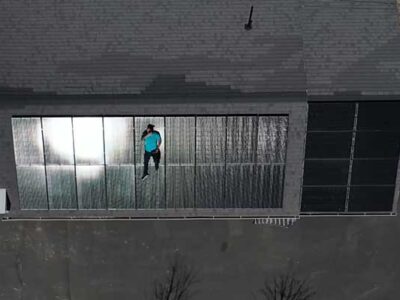There are concerns that homes with solar panels are reducing their utility bills at the expense of their neighbors without solar panels.
The phenomenon is referred to as “cost shifting”: the idea that the credits utilities pay to solar homes for the energy they produce ultimately results in higher bills for customers without panels. This has had major implications on public policy…for better or worse.
So, is there any truth in the idea that the solar haves are making things worse for the solar have-nots? Who really benefits from residential solar, and how can we invest in renewables while keeping things fair?
Is the solar cost shift real?
I’m Matt Ferrell, welcome to Undecided!










Comments